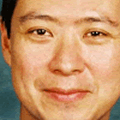
TODAY's columnist and well-known Singaporean poet Felix Cheong thinks that this is a great time to be a writer in Asia. Not only there is growing worldwide interest in writing from Asia but opportunities are also cropping up to support and grow Asian talent.
Excerpts from his Today Column:
THERE'S no better time to be a writer in Asia than now.
Just as Hollywood is gradually wising up to the wealth of film-making talent in the East, so too are international publishers. And we're not just talking about writers whose novels merely pander to the Western taste for exotica.
Take, for instance, the recent launch of mainland Chinese author Fan Wu's maiden novel, February Flowers.
About the friendship between two friends in Guangzhou and the sexual awakening of the narrator, the book has none of the hang-ups about Asian identity that characterise Chinese-American novels such as Amy Tan's The Joy Luck Club and Maxine Hong-Kingston's The Woman Warrior.
February Flowers is the first title to be released under a new imprint, Picador Asia, a division of literary powerhouse Picador.
Picador is owned by Macmillan Publishers in the United Kingdom and Picador Asia joins other divisions of the company such as Picador USA, Picador Australia, Picador Africa and Picador India.
"It's to cater to the growing demand for literary writing by Asian writers in English, both from within Asia and from the main English-language markets around the world," said Macmillan's managing director Daniel Watts in an interview with Today.
The 35-year-old was in town recently for the launch of February Flowers at the Raffles Hotel, along with Toby Eady, a well-known literary agent acting as Picador Asia's publishing consultant.
Watts disclosed that Picador Asia plans to issue three titles in the coming months, such as The Eye of Jade by another Chinese writer, Diane Wei Liang.
Each of these authors is committed to a two-book deal, with another five or six projects that have yet to be inked. Also in the pipeline are commercial non-fiction books and, possibly, children's fiction.
But the print run, he admitted, will be modest — 20,000 copies of each book, packaged in different editions for the Asian, Australian and British markets.
"To be honest, we don't have bullish, ambitious sales targets," Watts conceded. "We're not doing this to make a lot of money but because we believe in building a destination for Asian writers to put their mark on the literary scene around the world."

No comments:
Post a Comment